【名师面对面】2015中考精英英语(外研版)总复习课件:第14讲 八年级下册 Modules 5~6(共38张PPT)
文档属性
| 名称 | 【名师面对面】2015中考精英英语(外研版)总复习课件:第14讲 八年级下册 Modules 5~6(共38张PPT) | 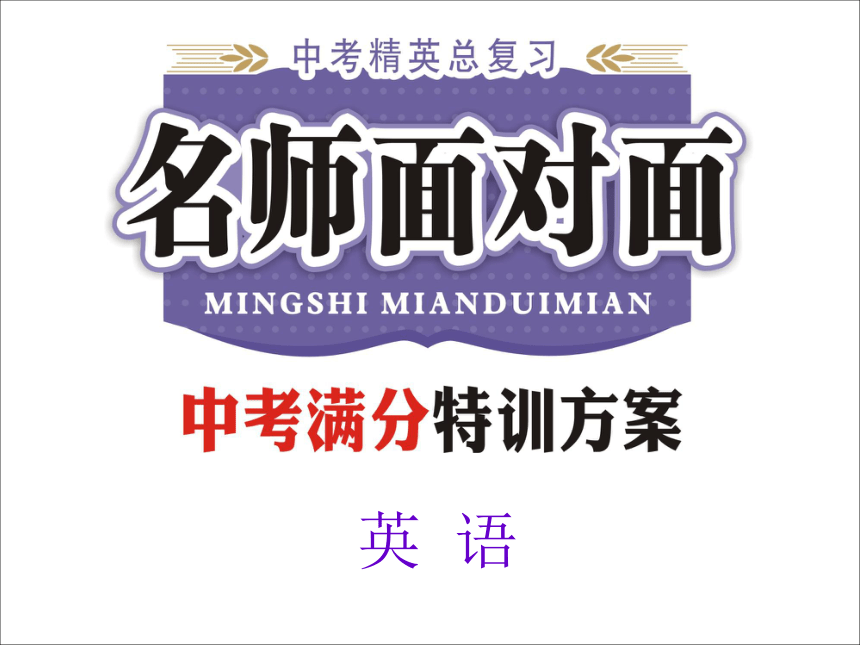 | |
| 格式 | zip | ||
| 文件大小 | 1.0MB | ||
| 资源类型 | 教案 | ||
| 版本资源 | 外研版 | ||
| 科目 | 英语 | ||
| 更新时间 | 2014-12-19 19:16:28 | ||
图片预览

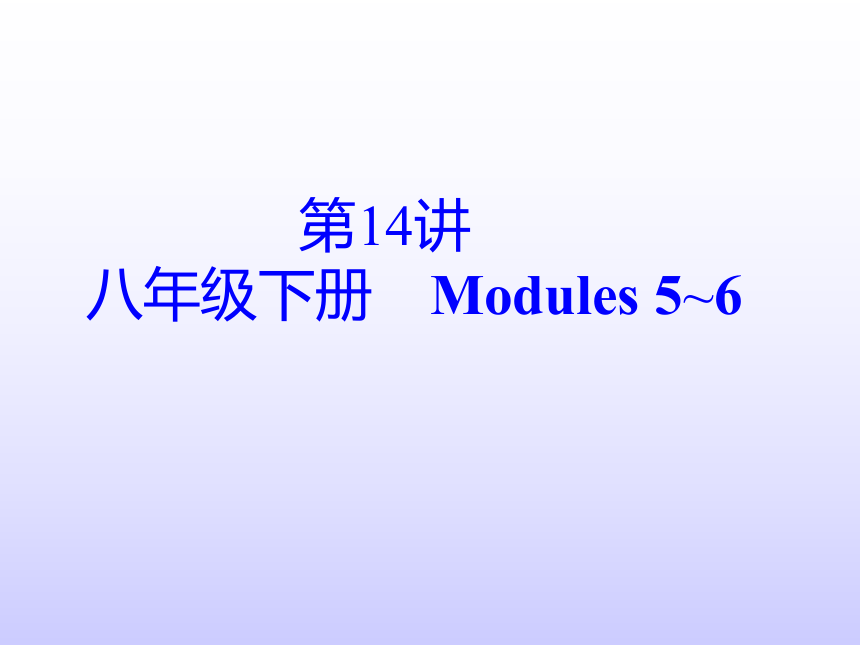
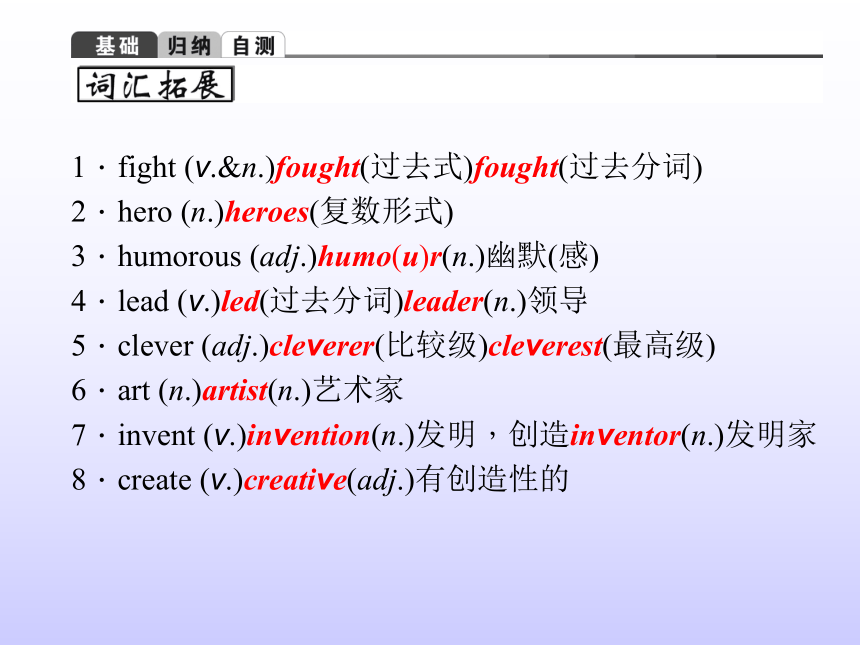
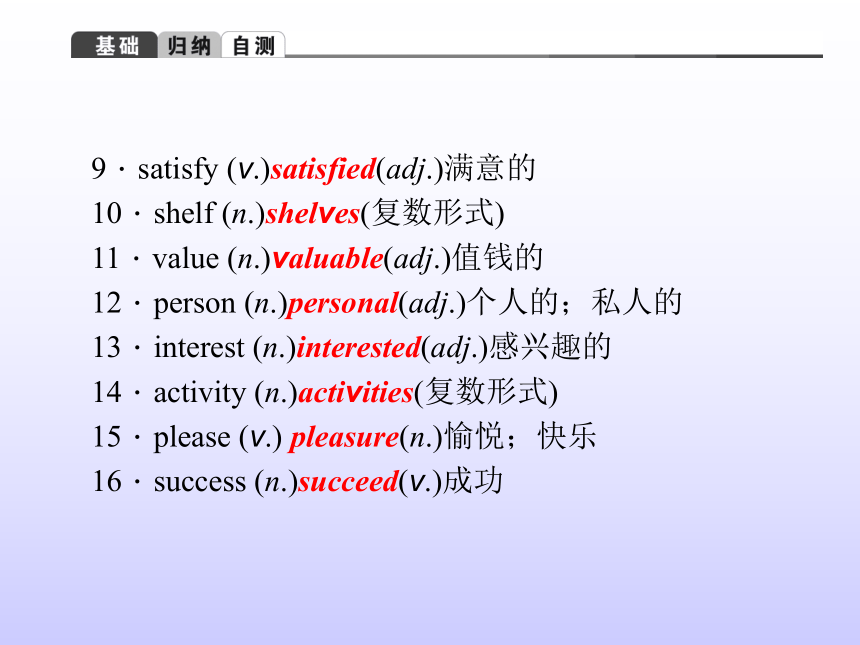
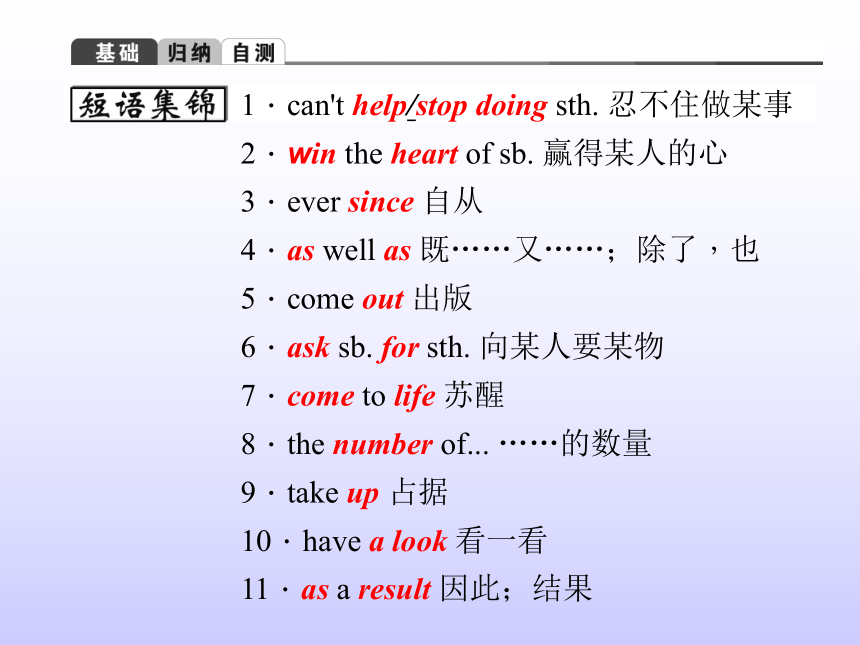
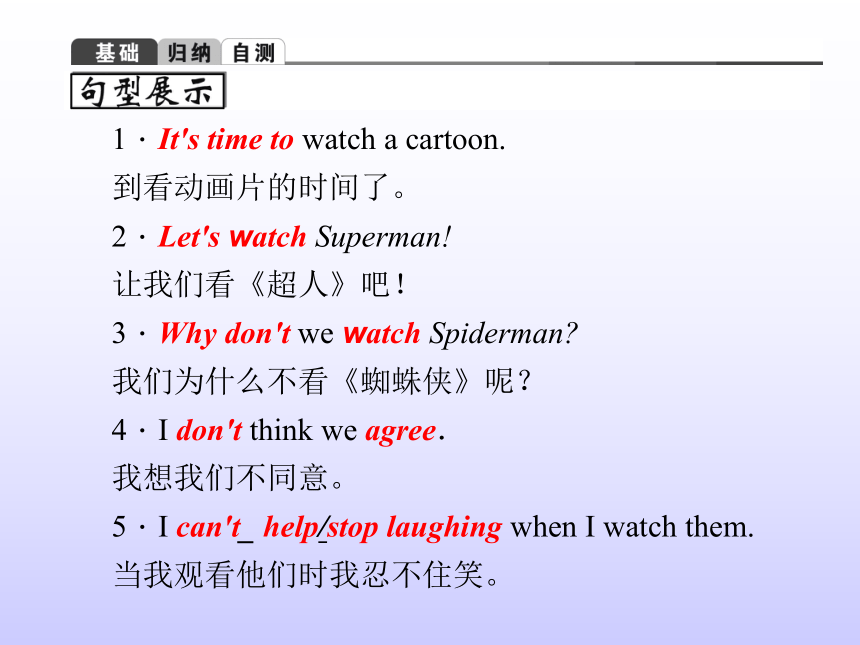
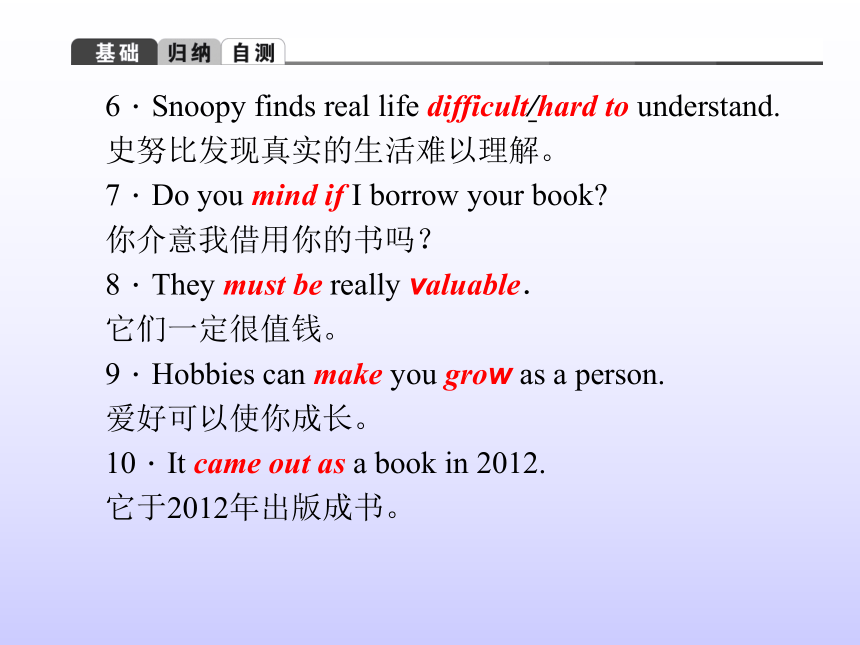

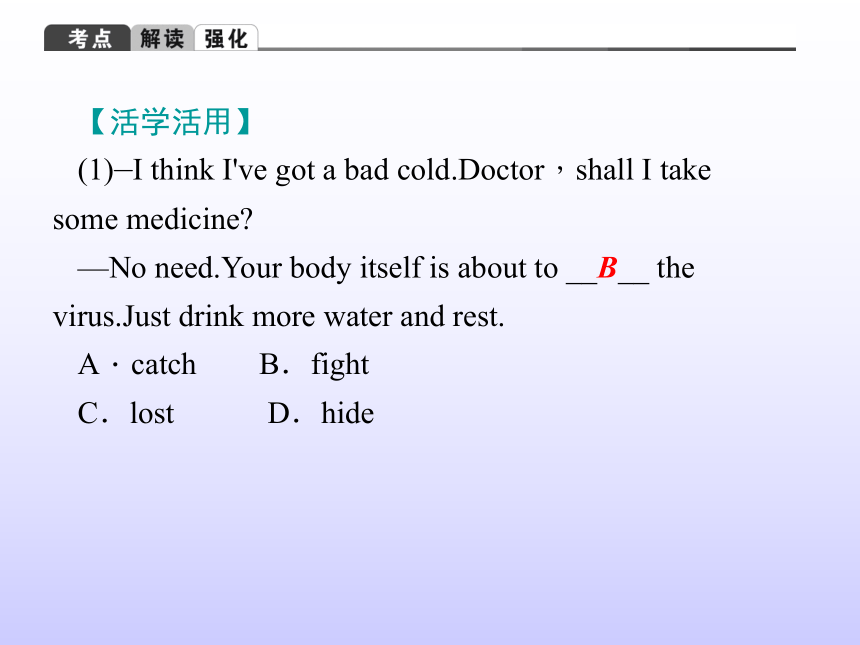
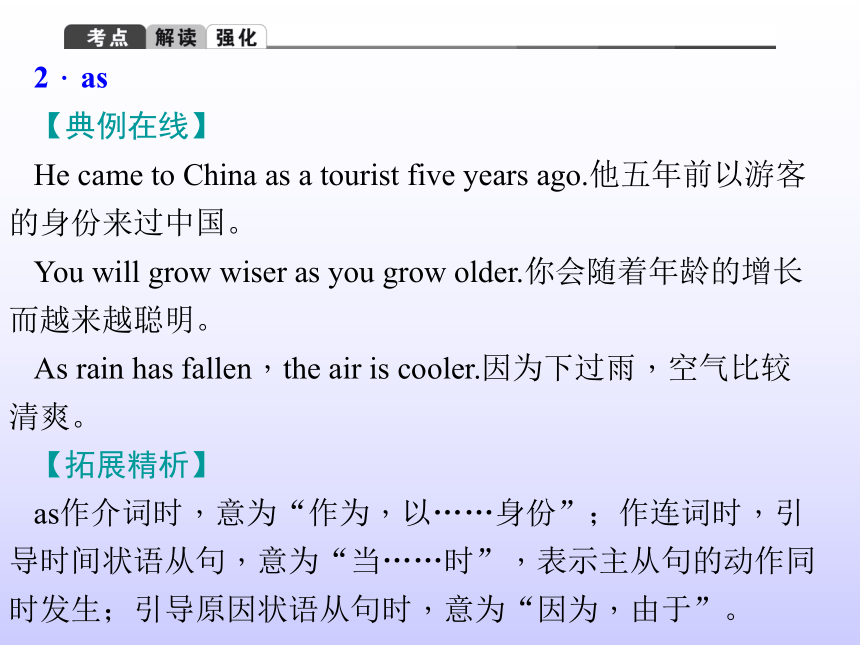
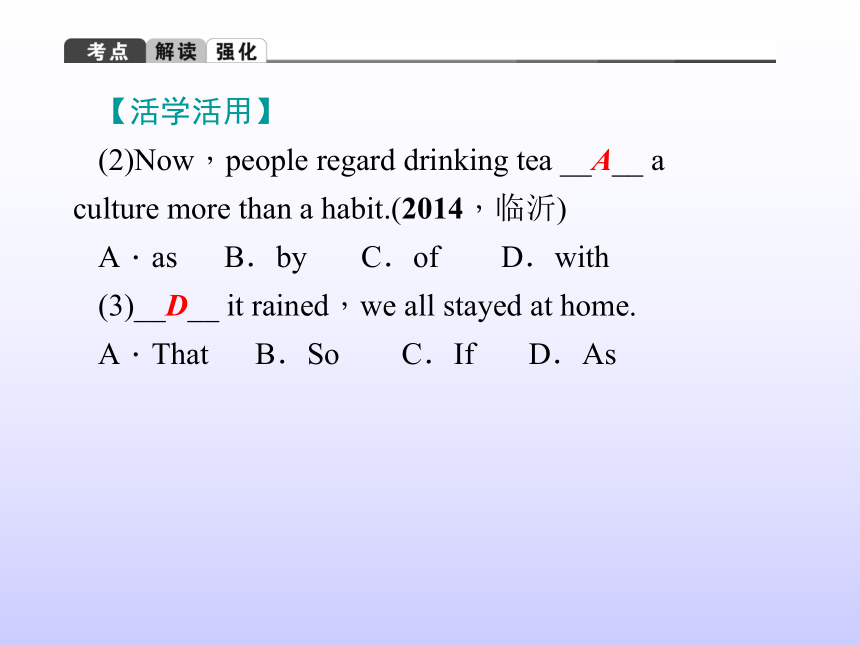
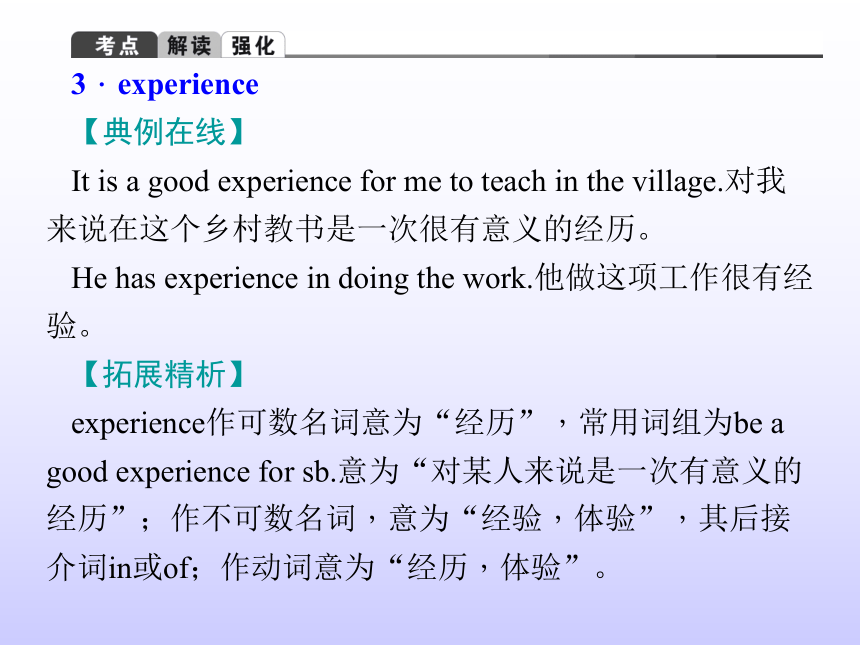
文档简介
课件38张PPT。英 语第14讲
八年级下册 Modules 5~61.fight (v.&n.)fought(过去式)fought(过去分词)
2.hero (n.)heroes(复数形式)
3.humorous (adj.)humo(u)r(n.)幽默(感)
4.lead (v.)led(过去分词)leader(n.)领导
5.clever (adj.)cleverer(比较级)cleverest(最高级)
6.art (n.)artist(n.)艺术家
7.invent (v.)invention(n.)发明,创造inventor(n.)发明家
8.create (v.)creative(adj.)有创造性的9.satisfy (v.)satisfied(adj.)满意的
10.shelf (n.)shelves(复数形式)
11.value (n.)valuable(adj.)值钱的
12.person (n.)personal(adj.)个人的;私人的
13.interest (n.)interested(adj.)感兴趣的
14.activity (n.)activities(复数形式)
15.please (v.) pleasure(n.)愉悦;快乐
16.success (n.)succeed(v.)成功1.can't help/stop doing sth. 忍不住做某事
2.win the heart of sb. 赢得某人的心
3.ever since 自从
4.as well as 既……又……;除了,也
5.come out 出版
6.ask sb. for sth. 向某人要某物
7.come to life 苏醒
8.the number of... ……的数量
9.take up 占据
10.have a look 看一看
11.as a result 因此;结果1.It's time to watch a cartoon.
到看动画片的时间了。
2.Let's watch Superman!
让我们看《超人》吧!
3.Why don't we watch Spiderman?
我们为什么不看《蜘蛛侠》呢?
4.I don't think we agree.
我想我们不同意。
5.I can't_ help/stop laughing when I watch them.
当我观看他们时我忍不住笑。6.Snoopy finds real life difficult/hard to understand.
史努比发现真实的生活难以理解。
7.Do you mind if I borrow your book?
你介意我借用你的书吗?
8.They must be really valuable.
它们一定很值钱。
9.Hobbies can make you grow as a person.
爱好可以使你成长。
10.It came out as a book in 2012.
它于2012年出版成书。1.fight
【典例在线】
They fought against the enemy fiercely.他们猛烈地还击敌人。
She was always fighting with her neighbour about the fence.她和她的邻居总是为了栅栏的事争吵。
【拓展精析】
fight作及物动词,意为“与……战斗;反对”,可直接跟宾语;作不及物动词,意为“与……作斗争”。常与介词with或against连用。【活学活用】
(1)—I think I've got a bad cold.Doctor,shall I take some medicine?
—No need.Your body itself is about to __B__ the virus.Just drink more water and rest.
A.catch B.fight
C.lost D.hide2.as
【典例在线】
He came to China as a tourist five years ago.他五年前以游客的身份来过中国。
You will grow wiser as you grow older.你会随着年龄的增长而越来越聪明。
As rain has fallen,the air is cooler.因为下过雨,空气比较清爽。
【拓展精析】
as作介词时,意为“作为,以……身份”;作连词时,引导时间状语从句,意为“当……时”,表示主从句的动作同时发生;引导原因状语从句时,意为“因为,由于”。【活学活用】
(2)Now,people regard drinking tea __A__ a culture more than a habit.(2014,临沂)
A.as B.by C.of D.with
(3)__D__ it rained,we all stayed at home.
A.That B.So C.If D.As3.experience
【典例在线】
It is a good experience for me to teach in the village.对我来说在这个乡村教书是一次很有意义的经历。
He has experience in doing the work.他做这项工作很有经验。
【拓展精析】
experience作可数名词意为“经历”,常用词组为be a good experience for sb.意为“对某人来说是一次有意义的经历”;作不可数名词,意为“经验,体验”,其后接介词in或of;作动词意为“经历,体验”。【活学活用】
(4)He is a man of much __B__,and he has many ___.
A.experiences;experiences
B.experience;experiences
C.experience;experience
D.experiences;experience
(5)Mrs Wang came back after working as a volunteer in a poor village.She said she would never forget the pleasant __C__ while working there.
A.experiments B.expressions
C.experiences D.emotions4.expect
【典例在线】
They always expect to see more Monkey King cartoons.他们总是期望看到更多的猴王动画片。
He expects her to go with him.他期望她和他一起去。
I don't expect that he has done such a thing.我预料他不会做出这种事来。
【拓展精析】
expect是及物动词,意为“期待,盼望”后接名词、代词或动词不定式作宾语,也可接动词不定式作宾语补足语,即expect sb. to do sth.(期望某人做某事);也可接that从句,当expect接否定的that从句时,否定要前移。 【活学活用】
(6)—You look sad.What has happened?
—Everyone __B__ us to win the match,but we lost.
A.expects B.expected
C.hopes D.hoped
(7)They expect their daughter __B__ a good university in the future.
A.entering B.to enter
C.enters D.entered
(8)You can't expect to_learn(learn) a foreign language in such a short time.(2014,兰州)1.It's time to watch a cartoon.该看卡通片了。
【典例在线】
It's time to have breakfast.=It's time for breakfast.该吃早饭了。
It's time to go to school.=It's time for school.该去上学了。
It's time for us to go home.我们该回家了。
【拓展精析】
It is/was time to do sth.意为“该做某事了;到做某事的时间了”,与It is/was time for sth.同义。【活学活用】
(1)It's time __D__ the Weather Report.Turn on the radio,please.
A.to B.in C.at D.for
(2)It's time for our lunch now.(同义句改写)
It's time for us to have lunch now.2.I don't think we agree.我想我们不同意。
【典例在线】
I don't think he is right.我认为他是不对的。
I don't believe he will come.我相信他不会来。
I believe my brother has never been late for school.我相信我的弟弟上学从不迟到。
【拓展精析】
I don't think是一个否定前移的句式。当I/We think(believe/suppose/expect...)后接含有not的否定句时,该否定应移至主句,即否定前移。涉及前移的只是not,not以外的其他否定词,如no,never,hardly,few,little,seldom等不必前移。变反意疑问句时,若think前的主语是第一人称时,以从句为准,若think前的主语是二、三人称时,以think前的主语为准。【活学活用】
(3)I don't think he is stupid,__B__?
A.do I B.is he
C.do you D.does he
(4)我想我并不认识你。
I_don't_think_I_know_you.1.a bit,a little
【典例在线】
It's a bit untidy.有点儿乱。
Get up a bit/a little earlier,and you will see the star.起早一点儿你就会看到这颗星星了。
There is a little water/a bit of water in the glass.杯子里还有点儿水
【拓展精析】
都意为“一点儿”,都可用来修饰动词、形容词、副词及其比较级。
a little可以直接修饰不可数名词,而a bit修饰不可数名词时,只能用a bit of。
not a bit意为“一点儿也不”;not a little意为“十分,极其,相当”。
注意:little(小的);little(少的,几乎没有),比较级为less,最高级为least,反义词为much。【活学活用】
(1)There is__B__milk in the fridge.You can drink it.
A.a bit B.a little C.little D.a little of
(2)He is of __B__cold.
A.a bit of B.a little
C.little D.bit
(3)I like him a_little (有点儿).
(4)He is a_little/bit (一点儿)taller than me.2.create,discover,invent,find
【典例在线】
They began to create a new world.他们开始创造一个新的世界。
Columbus discovered America. 哥伦布发现了美洲大陆。
Have you found your book?你找到你的书了吗?
Edison invented the electric light bulb.爱迪生发明了电灯泡。【拓展精析】
【活学活用】
(5)My sister __C__ her cat yesterday,but she didn't ________ it.
A.found;look for B.looked for;found
C.looked for;find D.discovered;found
(6)When he opened the door,he __C__ nothing but a card outside.
A.discovered B.invented
C.found D.found out3.pleasure,pleasant,pleased
【典例在线】
His hobby has brought him pleasure and success.他的爱好给他带来了快乐和成功。
I will never forget the pleasant journey.我将永远不会忘记这次令人愉快的旅行。
They are pleased with what I said.他们对我的话很满意。【拓展精析】
please动词“使……高兴”。pleasure是名词(愉悦,快乐),习惯用语有:It's a pleasure./My pleasure.(不用谢。/不客气。)/With pleasure.(非常乐意。)。pleasant是形容词“令人高兴的,令人愉快的”,相当于pleasing,用来描述物。pleased是形容词(高兴的,愉快的),相当于happy,用来描述人。常用短语有be pleased with(对……感到满意),be pleased to do sth.(高兴地做某事)。【活学活用】
(7)—Could you help me carry the books to the office?
—__C__.
A.It's a pleasure B.My pleasure
C.With pleasure D.A pleasure
(8)—What does your father think of your school report this term?(2014,德州)
—The smile on his face shows that he is __D__ what I have done in my study.
A.surprised at B.afraid of
C.angry with D .pleased with
(9)Yancheng,a green city,is a pleasant(please) place for people to live in.(2014,盐城)4.the number of,a number of
【典例在线】
The number of students in our class is 50.我们班学生的数量是50。
A number of students are playing football.许多学生正在踢足球。
【拓展精析】
the number of意为“……的数量”,后接复数名词,但谓语要用单数;a number of意为“大量;许多”,相当于many,接复数名词作主语时,谓语用复数形式。【活学活用】
(10)—How many girls are there in your class?(2014,烟台)
—__D__ them ________ over thirty.
A.A number of;are B.The number of;are
C.A number of;is D.The number of;is
(11)A number of volunteers __B__ from faraway cities.(2014,孝感)
A.is B.are
C.is come D.are come1.You'd better not put your computer here.It __B__ too much space.
A.takes off B.takes up
C.takes place D.takes out
2.The great writer has written many stories for children.It is said that a new one will be __B__ at the end of this month.
A.went out B.come out
C.looked out D.run out
3.—Mrs Wang was sent to teach English in a poor mountain village last year.
—She said she would never forget some __C__ experiences while working there.
A.please B.pleased C.pleasant D.pleasure4.—Why does Annie enjoy __A__?
—Because it can ________ her much pleasure.
A.drawing;bring B.to dance;make
C.ride;take D.reading;show
5.The zoo keeper is worried because the number of visitors __C__ smaller and smaller.(2014,平凉)
A.become B.are becoming
C.is becoming D.have become
6.Columbus __A__ America and Bell ______ telephone.
A.discovered;invented B.discovered;discovered
C.invented;invented D.invented;discovered7.There is __B__ water in the bottle.
A.bit B.a little
C.a little of D.a bit
8.She keeps the door __B__ and we can't enter.
A.close B.closed C.closing D.to close
9.—Hurry up!It's time __C__ class.
—I'm coming.
A.have B.have to C.to have D.having
10.—What do you think of the movie?
—It is not __B__ interesting ________ I expected.
A.as;so B.so;as C.so;that D.so;than倡议书的写作
倡议书是发动人们开展某项具体活动的一种应用文体,目的是希望大家共同完成某项任务或开展某项公益活动。
一、倡议书的构成:
1.标题:简单概括倡议的内容。英语倡议书多数情况下省略。
2.称呼:可根据受倡议对象选用适当的称谓,如:Dear classmates,Ladies and gentlemen,Boys and girls等。
3.正文:正文是倡议书的重要部分,主要写倡议的背景,倡议的对象、目的、内容、意义和要求。
4.结尾:表明倡议者的决心、希望以及建议,常用“Let's...!”“Why not...?”等提建议的句型。
5.落款:写倡议者的单位名称或发起人姓名。二、写倡议书时的注意事项:
1.倡议书的内容要有新的时尚和精神,要切实可行。
2.倡议书的背景、目的要写清楚,理由要充分,措辞要恰当,情感要真挚,同时要富有鼓动性。
3.篇幅不宜太长。
三、写作典例。(2014,十堰)
某中学在开展“崇尚节俭,文明做人 (advocating thrift and being civilized)”活动一年来,取得了很好的效果,但还有极少数学生做得不够好,在校园里依然还会出现以下图片中的情形。请你选择以下现象中的几种或全部进行描述,并就中学生如何“杜绝浪费,文明做人”提出至少两点建议。要求:1.文中不得出现真实的人名、校名。
2.语言通顺,意思连贯,书写规范。
3.词数80~100。文章的开头已给出,不计入总词数。【范文欣赏】
Some middle school students aren't doing enough in “advocating thrift and being civilized”.
We're sorry to see that there is still some waste in our school!For example,some often leave the taps on after washing their hands.In the dinning hall,a lot of food can be seen left after the meals.What's worse,we often find that waste paper is thrown everywhere,which makes others feel uncomfortable.In addition,some students like to write or draw on the wall or on the desk.
As middle school students,we should develop good habits and stop wasting anything.Let's do it from now on!请完成考点跟踪训练14
八年级下册 Modules 5~61.fight (v.&n.)fought(过去式)fought(过去分词)
2.hero (n.)heroes(复数形式)
3.humorous (adj.)humo(u)r(n.)幽默(感)
4.lead (v.)led(过去分词)leader(n.)领导
5.clever (adj.)cleverer(比较级)cleverest(最高级)
6.art (n.)artist(n.)艺术家
7.invent (v.)invention(n.)发明,创造inventor(n.)发明家
8.create (v.)creative(adj.)有创造性的9.satisfy (v.)satisfied(adj.)满意的
10.shelf (n.)shelves(复数形式)
11.value (n.)valuable(adj.)值钱的
12.person (n.)personal(adj.)个人的;私人的
13.interest (n.)interested(adj.)感兴趣的
14.activity (n.)activities(复数形式)
15.please (v.) pleasure(n.)愉悦;快乐
16.success (n.)succeed(v.)成功1.can't help/stop doing sth. 忍不住做某事
2.win the heart of sb. 赢得某人的心
3.ever since 自从
4.as well as 既……又……;除了,也
5.come out 出版
6.ask sb. for sth. 向某人要某物
7.come to life 苏醒
8.the number of... ……的数量
9.take up 占据
10.have a look 看一看
11.as a result 因此;结果1.It's time to watch a cartoon.
到看动画片的时间了。
2.Let's watch Superman!
让我们看《超人》吧!
3.Why don't we watch Spiderman?
我们为什么不看《蜘蛛侠》呢?
4.I don't think we agree.
我想我们不同意。
5.I can't_ help/stop laughing when I watch them.
当我观看他们时我忍不住笑。6.Snoopy finds real life difficult/hard to understand.
史努比发现真实的生活难以理解。
7.Do you mind if I borrow your book?
你介意我借用你的书吗?
8.They must be really valuable.
它们一定很值钱。
9.Hobbies can make you grow as a person.
爱好可以使你成长。
10.It came out as a book in 2012.
它于2012年出版成书。1.fight
【典例在线】
They fought against the enemy fiercely.他们猛烈地还击敌人。
She was always fighting with her neighbour about the fence.她和她的邻居总是为了栅栏的事争吵。
【拓展精析】
fight作及物动词,意为“与……战斗;反对”,可直接跟宾语;作不及物动词,意为“与……作斗争”。常与介词with或against连用。【活学活用】
(1)—I think I've got a bad cold.Doctor,shall I take some medicine?
—No need.Your body itself is about to __B__ the virus.Just drink more water and rest.
A.catch B.fight
C.lost D.hide2.as
【典例在线】
He came to China as a tourist five years ago.他五年前以游客的身份来过中国。
You will grow wiser as you grow older.你会随着年龄的增长而越来越聪明。
As rain has fallen,the air is cooler.因为下过雨,空气比较清爽。
【拓展精析】
as作介词时,意为“作为,以……身份”;作连词时,引导时间状语从句,意为“当……时”,表示主从句的动作同时发生;引导原因状语从句时,意为“因为,由于”。【活学活用】
(2)Now,people regard drinking tea __A__ a culture more than a habit.(2014,临沂)
A.as B.by C.of D.with
(3)__D__ it rained,we all stayed at home.
A.That B.So C.If D.As3.experience
【典例在线】
It is a good experience for me to teach in the village.对我来说在这个乡村教书是一次很有意义的经历。
He has experience in doing the work.他做这项工作很有经验。
【拓展精析】
experience作可数名词意为“经历”,常用词组为be a good experience for sb.意为“对某人来说是一次有意义的经历”;作不可数名词,意为“经验,体验”,其后接介词in或of;作动词意为“经历,体验”。【活学活用】
(4)He is a man of much __B__,and he has many ___.
A.experiences;experiences
B.experience;experiences
C.experience;experience
D.experiences;experience
(5)Mrs Wang came back after working as a volunteer in a poor village.She said she would never forget the pleasant __C__ while working there.
A.experiments B.expressions
C.experiences D.emotions4.expect
【典例在线】
They always expect to see more Monkey King cartoons.他们总是期望看到更多的猴王动画片。
He expects her to go with him.他期望她和他一起去。
I don't expect that he has done such a thing.我预料他不会做出这种事来。
【拓展精析】
expect是及物动词,意为“期待,盼望”后接名词、代词或动词不定式作宾语,也可接动词不定式作宾语补足语,即expect sb. to do sth.(期望某人做某事);也可接that从句,当expect接否定的that从句时,否定要前移。 【活学活用】
(6)—You look sad.What has happened?
—Everyone __B__ us to win the match,but we lost.
A.expects B.expected
C.hopes D.hoped
(7)They expect their daughter __B__ a good university in the future.
A.entering B.to enter
C.enters D.entered
(8)You can't expect to_learn(learn) a foreign language in such a short time.(2014,兰州)1.It's time to watch a cartoon.该看卡通片了。
【典例在线】
It's time to have breakfast.=It's time for breakfast.该吃早饭了。
It's time to go to school.=It's time for school.该去上学了。
It's time for us to go home.我们该回家了。
【拓展精析】
It is/was time to do sth.意为“该做某事了;到做某事的时间了”,与It is/was time for sth.同义。【活学活用】
(1)It's time __D__ the Weather Report.Turn on the radio,please.
A.to B.in C.at D.for
(2)It's time for our lunch now.(同义句改写)
It's time for us to have lunch now.2.I don't think we agree.我想我们不同意。
【典例在线】
I don't think he is right.我认为他是不对的。
I don't believe he will come.我相信他不会来。
I believe my brother has never been late for school.我相信我的弟弟上学从不迟到。
【拓展精析】
I don't think是一个否定前移的句式。当I/We think(believe/suppose/expect...)后接含有not的否定句时,该否定应移至主句,即否定前移。涉及前移的只是not,not以外的其他否定词,如no,never,hardly,few,little,seldom等不必前移。变反意疑问句时,若think前的主语是第一人称时,以从句为准,若think前的主语是二、三人称时,以think前的主语为准。【活学活用】
(3)I don't think he is stupid,__B__?
A.do I B.is he
C.do you D.does he
(4)我想我并不认识你。
I_don't_think_I_know_you.1.a bit,a little
【典例在线】
It's a bit untidy.有点儿乱。
Get up a bit/a little earlier,and you will see the star.起早一点儿你就会看到这颗星星了。
There is a little water/a bit of water in the glass.杯子里还有点儿水
【拓展精析】
都意为“一点儿”,都可用来修饰动词、形容词、副词及其比较级。
a little可以直接修饰不可数名词,而a bit修饰不可数名词时,只能用a bit of。
not a bit意为“一点儿也不”;not a little意为“十分,极其,相当”。
注意:little(小的);little(少的,几乎没有),比较级为less,最高级为least,反义词为much。【活学活用】
(1)There is__B__milk in the fridge.You can drink it.
A.a bit B.a little C.little D.a little of
(2)He is of __B__cold.
A.a bit of B.a little
C.little D.bit
(3)I like him a_little (有点儿).
(4)He is a_little/bit (一点儿)taller than me.2.create,discover,invent,find
【典例在线】
They began to create a new world.他们开始创造一个新的世界。
Columbus discovered America. 哥伦布发现了美洲大陆。
Have you found your book?你找到你的书了吗?
Edison invented the electric light bulb.爱迪生发明了电灯泡。【拓展精析】
【活学活用】
(5)My sister __C__ her cat yesterday,but she didn't ________ it.
A.found;look for B.looked for;found
C.looked for;find D.discovered;found
(6)When he opened the door,he __C__ nothing but a card outside.
A.discovered B.invented
C.found D.found out3.pleasure,pleasant,pleased
【典例在线】
His hobby has brought him pleasure and success.他的爱好给他带来了快乐和成功。
I will never forget the pleasant journey.我将永远不会忘记这次令人愉快的旅行。
They are pleased with what I said.他们对我的话很满意。【拓展精析】
please动词“使……高兴”。pleasure是名词(愉悦,快乐),习惯用语有:It's a pleasure./My pleasure.(不用谢。/不客气。)/With pleasure.(非常乐意。)。pleasant是形容词“令人高兴的,令人愉快的”,相当于pleasing,用来描述物。pleased是形容词(高兴的,愉快的),相当于happy,用来描述人。常用短语有be pleased with(对……感到满意),be pleased to do sth.(高兴地做某事)。【活学活用】
(7)—Could you help me carry the books to the office?
—__C__.
A.It's a pleasure B.My pleasure
C.With pleasure D.A pleasure
(8)—What does your father think of your school report this term?(2014,德州)
—The smile on his face shows that he is __D__ what I have done in my study.
A.surprised at B.afraid of
C.angry with D .pleased with
(9)Yancheng,a green city,is a pleasant(please) place for people to live in.(2014,盐城)4.the number of,a number of
【典例在线】
The number of students in our class is 50.我们班学生的数量是50。
A number of students are playing football.许多学生正在踢足球。
【拓展精析】
the number of意为“……的数量”,后接复数名词,但谓语要用单数;a number of意为“大量;许多”,相当于many,接复数名词作主语时,谓语用复数形式。【活学活用】
(10)—How many girls are there in your class?(2014,烟台)
—__D__ them ________ over thirty.
A.A number of;are B.The number of;are
C.A number of;is D.The number of;is
(11)A number of volunteers __B__ from faraway cities.(2014,孝感)
A.is B.are
C.is come D.are come1.You'd better not put your computer here.It __B__ too much space.
A.takes off B.takes up
C.takes place D.takes out
2.The great writer has written many stories for children.It is said that a new one will be __B__ at the end of this month.
A.went out B.come out
C.looked out D.run out
3.—Mrs Wang was sent to teach English in a poor mountain village last year.
—She said she would never forget some __C__ experiences while working there.
A.please B.pleased C.pleasant D.pleasure4.—Why does Annie enjoy __A__?
—Because it can ________ her much pleasure.
A.drawing;bring B.to dance;make
C.ride;take D.reading;show
5.The zoo keeper is worried because the number of visitors __C__ smaller and smaller.(2014,平凉)
A.become B.are becoming
C.is becoming D.have become
6.Columbus __A__ America and Bell ______ telephone.
A.discovered;invented B.discovered;discovered
C.invented;invented D.invented;discovered7.There is __B__ water in the bottle.
A.bit B.a little
C.a little of D.a bit
8.She keeps the door __B__ and we can't enter.
A.close B.closed C.closing D.to close
9.—Hurry up!It's time __C__ class.
—I'm coming.
A.have B.have to C.to have D.having
10.—What do you think of the movie?
—It is not __B__ interesting ________ I expected.
A.as;so B.so;as C.so;that D.so;than倡议书的写作
倡议书是发动人们开展某项具体活动的一种应用文体,目的是希望大家共同完成某项任务或开展某项公益活动。
一、倡议书的构成:
1.标题:简单概括倡议的内容。英语倡议书多数情况下省略。
2.称呼:可根据受倡议对象选用适当的称谓,如:Dear classmates,Ladies and gentlemen,Boys and girls等。
3.正文:正文是倡议书的重要部分,主要写倡议的背景,倡议的对象、目的、内容、意义和要求。
4.结尾:表明倡议者的决心、希望以及建议,常用“Let's...!”“Why not...?”等提建议的句型。
5.落款:写倡议者的单位名称或发起人姓名。二、写倡议书时的注意事项:
1.倡议书的内容要有新的时尚和精神,要切实可行。
2.倡议书的背景、目的要写清楚,理由要充分,措辞要恰当,情感要真挚,同时要富有鼓动性。
3.篇幅不宜太长。
三、写作典例。(2014,十堰)
某中学在开展“崇尚节俭,文明做人 (advocating thrift and being civilized)”活动一年来,取得了很好的效果,但还有极少数学生做得不够好,在校园里依然还会出现以下图片中的情形。请你选择以下现象中的几种或全部进行描述,并就中学生如何“杜绝浪费,文明做人”提出至少两点建议。要求:1.文中不得出现真实的人名、校名。
2.语言通顺,意思连贯,书写规范。
3.词数80~100。文章的开头已给出,不计入总词数。【范文欣赏】
Some middle school students aren't doing enough in “advocating thrift and being civilized”.
We're sorry to see that there is still some waste in our school!For example,some often leave the taps on after washing their hands.In the dinning hall,a lot of food can be seen left after the meals.What's worse,we often find that waste paper is thrown everywhere,which makes others feel uncomfortable.In addition,some students like to write or draw on the wall or on the desk.
As middle school students,we should develop good habits and stop wasting anything.Let's do it from now on!请完成考点跟踪训练14
